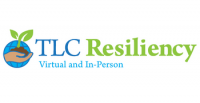Back in March before the world shut down, we had enough stress on our plates. Combine regular stressors with a pandemic and we have a mental health crisis on our hands. That is exactly what is currently happening– compounding stressors are taking a serious toll on our minds and bodies. In a new report from the American Psychological Association (APA) they make it clear that we are facing a mental health crisis that can potentially lead to health and social consequences for years to come.
What is compounding stress?
Compounding stress is when we are dealing with many stressors at the same time. With Covid-19, many individuals are stressed about their health and the health of their loved ones. If a loved one has passed, that creates further stress as individuals are coping with grief. If you have children, dealing with virtual learning and childcare responsibilities while you’re trying to do your own job is another serious stressor. To top it off, job loss and insecurity, financial distress and uncertain futures are all weighing heavily on Americans’ minds. With all this in mind, it is no wonder that our country is suffering.
How has compounded stress affected Americans?
According to APA’s findings, 78% of adults say that the coronavirus is a significant source of stress in their life and 67% say that they have had increased stress over the course of the pandemic. Nearly half of adults report that their behavior has been negatively affected. Many reported increased tension in their bodies, getting angry very quickly (i.e. “snapping” at others), unexpected mood swings, and yelling or screaming at loved ones.
For those with children, the APA found that 70% of parents reported that family responsibilities are a significant source of stress. 63% reported that the pandemic made the 2019-2020 school year extremely stressful for them personally. The uncertainty of the 2020-2021 school year continues to cause 77% of parents significant levels of stress.
For those with and without children, work and financial disruptions are raising stress levels around the country. The economy is a large source of stress for many Americans (63%), which is significantly higher than stress levels reported in 2019 (46%). While work as a source of stress has remained the same since 2019 (63%), more Americans reported that work stability is a major stressor. Additionally, 68% of Americans report that their employment has been negatively impacted by Covid-19 with pay cuts, hour cuts, trying to balance household responsibilities while working, being laid off, and experiencing decreased productivity.
So I’m stressed out. Now what?
Since the pandemic does not seem to be going away any time soon, we need to learn how to effectively deal with the stressors in our lives before they affect our health and wellbeing. One of the APA’s suggestions is to provide employees and co-workers with emotional support by doing regular check-ins and showing empathy to others. TLC Virtual Resiliency is also here to provide companies and employees with the tools they need to handle stress in a healthy way. Successful handling of stressors can help you build resiliency and make you better able to handle future stressors in your everyday life. Contact us today to find out how we can help your employees thrive during these challenging times.
To read APA’s full report, click here.

